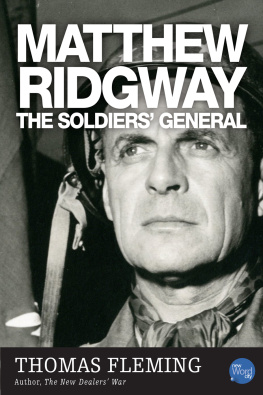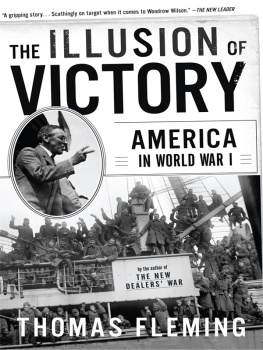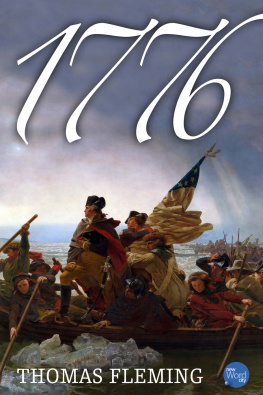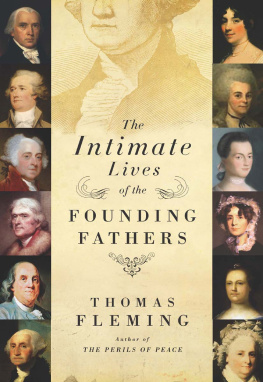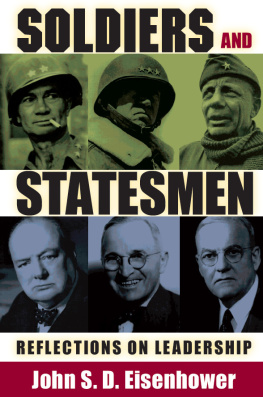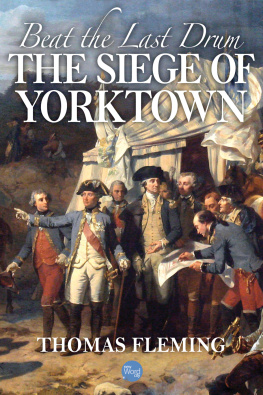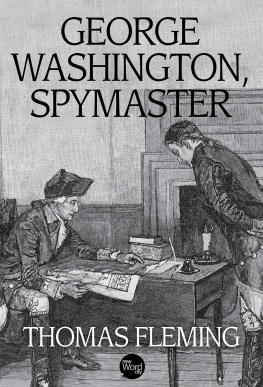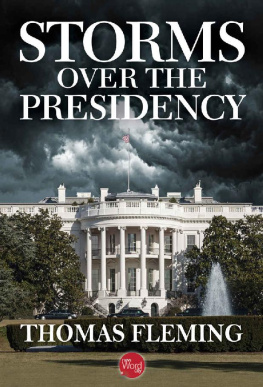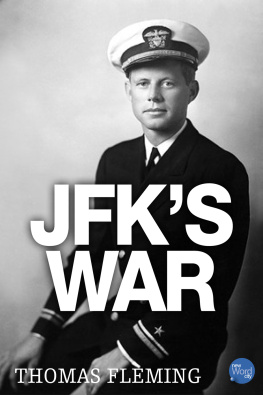Thomas Fleming - Matthew Ridgway. The Soldiers General
Here you can read online Thomas Fleming - Matthew Ridgway. The Soldiers General full text of the book (entire story) in english for free. Download pdf and epub, get meaning, cover and reviews about this ebook. year: 2013, publisher: New Word City, genre: History. Description of the work, (preface) as well as reviews are available. Best literature library LitArk.com created for fans of good reading and offers a wide selection of genres:
Romance novel
Science fiction
Adventure
Detective
Science
History
Home and family
Prose
Art
Politics
Computer
Non-fiction
Religion
Business
Children
Humor
Choose a favorite category and find really read worthwhile books. Enjoy immersion in the world of imagination, feel the emotions of the characters or learn something new for yourself, make an fascinating discovery.
- Book:Matthew Ridgway. The Soldiers General
- Author:
- Publisher:New Word City
- Genre:
- Year:2013
- Rating:3 / 5
- Favourites:Add to favourites
- Your mark:
- 60
- 1
- 2
- 3
- 4
- 5
Matthew Ridgway. The Soldiers General: summary, description and annotation
We offer to read an annotation, description, summary or preface (depends on what the author of the book "Matthew Ridgway. The Soldiers General" wrote himself). If you haven't found the necessary information about the book — write in the comments, we will try to find it.
The greatest American general of the twentieth century wasnt Dwight Eisenhower or George Patton or Douglas MacArthur. The honor, according to New York Times bestselling historian Thomas Fleming, belongs to Matthew Ridgway, who led Americas Eighth Army to victory in Korea. Here, in this short-form book, is his courageous story.
Matthew Ridgway. The Soldiers General — read online for free the complete book (whole text) full work
Below is the text of the book, divided by pages. System saving the place of the last page read, allows you to conveniently read the book "Matthew Ridgway. The Soldiers General" online for free, without having to search again every time where you left off. Put a bookmark, and you can go to the page where you finished reading at any time.
Font size:
Interval:
Bookmark:
If you asked people to identify the greatest American general of the twentieth century, most would say Dwight D. Eisenhower, the adroit politician who organized the Allied invasion of Europe, or Douglas MacArthur, a leader in both world wars, or George C. Marshall, the architect of victory in World War II. John J. Pershing and George S. Patton would also receive nods. But if you posed that question to professional soldiers, a surprising number of them would answer: Ridgway.
When they reach this conclusion, they arent thinking of the general who excelled as a division commander and an army corps commander in World War II - many other men distinguished themselves in those roles. The soldiers are remembering the general who, in 1951, rallied a beaten Eighth Army from the brink of collapse in Korea.
Matthew Bunker Ridgway - the son of a West Point graduate who retired as a colonel of the artillery - received his diploma from the U.S. Military Academy in 1917. Although his academic record was mediocre, he was, even then, thinking about how to become a general. One skill he cultivated was the ability to remember names. By the time he reached the end of his first year, he knew every one of the schools 750 cadets.
Ridgway wanted to be sent into combat in France, but he was ordered to teach Spanish at West Point - an undertaking that he was sure would hinder or end his military career. As it turned out, it was probably the first of many examples of Ridgways good luck. Like Eisenhower and General Omar Bradley, he escaped the trench mentality inflicted on too many officers by experience in World War I.
He persevered in his new job, mastering Spanish and becoming one of a handful of officers fluent in it. He stayed at West Point for six years, getting to know its controversial young superintendent, Brigadier General Douglas MacArthur, who was trying and failing to stop the academy from preparing cadets for old ways of war, not new ones.
In the 1920s and 1930s, Ridgways skills as a linguist and writer brought him more staff assignments than he claimed he wanted. In those days, troop leadership was what counted when it came time for the military to hand out promotions. But Ridgways passion for excellence and commitment to the army attracted the attention of many people, including George Marshall, a rising star in the generation ahead of him. In the 1930s, Ridgway served under Marshall in the Fifteenth Infantry in China. He also was on Marshalls general staff in Washington, D.C., when the Japanese attacked Pearl Harbor, plunging the United States into World War II.
As the army expanded geometrically during the next year, Ridgway acquired two stars and the command of the Eighty-Second Division. When Marshall decided to remake the division into an airborne outfit, Ridgway strapped on a parachute and jumped out of a plane for the first time in his life. Returning to his men, he cheerfully reported there was nothing to the transition to paratrooper. His remarks quieted a lot of angst in the division - although he privately admitted to a few friends that nothing was like jumping off the top of a moving freight train onto a hard roadbed.
Dropped into Sicily on the night of July 9, 1943, Ridgways paratroopers survived a series of snafus. Navy gunners shot down twenty of their planes as flew came over the Mediterranean from North Africa. In the darkness, their confused pilots scattered them over the island. Nevertheless, they rescued the invasion by preventing Hermann Grings panzer division from attacking the vulnerable beachhead and throwing the first invaders of Adolf Hitlers Fortress Europe into the sea.
In this campaign, Ridgway displayed many of the traits that became hallmarks of his leadership. He scorned a rear-area command post. Battalion and even company commanders never knew when they would find Ridgway at their elbows, urging them forward, demanding to know why they were doing this and not that. His close calls with small- and large-caliber enemy fire swiftly acquired mythical proportions. Even Patton, who was not shy about facing the enemy, ordered Ridgway to stop trying to be the Eighty-Second Divisions point man. Ridgway, for the most part, ignored the order, calling it a compliment.
From Patton, Ridgway acquired another command habit: the practice of stopping to praise the lower ranks. He noted the remarkable way good words could galvanize an entire battalion, even a regiment. At the same time, Ridgway displayed a callous willingness to replace any officer who did not meet his high standards of battlefield performance. Speed and aggressiveness were what he demanded. If an enemy force appeared on a units front, he wanted an immediate deployment for flank attacks. He did not tolerate commanders who pondered their actions for an hour or two.
In the heat of battle, Ridgway also revealed an unparalleled capacity to taunt the enemy. One of his favorite stunts was to stand in the middle of a road under heavy artillery fire and urinate to show his contempt for German accuracy. Aides and fellow generals repeatedly begged him to cease this bravado. He ignored them.
Ridgways experience as an airborne commander encouraged another trait that differentiated him from other American officers - a willingness to question, even to challenge, the policies of his superiors. After the glitches of the Sicily drop, Eisenhower and other generals concluded that division-size airborne operations werent practical. Ridgway fought ferociously against that attitude. Winning the argument, he then found himself menaced by the widespread assumption that an airborne attack could solve problems with remarkable ease.
The commander of the Allied invasion of Italy, General Harold Alexander, decided Ridgways paratroopers were a perfect tool for disrupting German defense plans. Alexander ordered the Eighty-Second Airbornes paratroopers to jump north of Rome. They were to capture the city and hold it while the main army drove to link up with them. Ridgway was appalled. His men would have to fly without escort - Rome was beyond the range of Allied fighters - risking annihilation before they got to the target.
There were at least six elite German divisions near the city, ready and willing to maul the relatively small Eighty-Second Airborne. At this point in the war, an airborne division had only 8,000 men. Their heaviest gun was a seventy-five-millimeter pack howitzer - a peashooter, in Ridgways words - against tanks. For food, ammunition, fuel, and transportation, the Americans depended on the Italians, who were planning to betray the Germans and abandon the war.
Ridgway wangled a meeting with General Alexander, who listened to his doubts, then dismissed them. Dont give this another thought, Ridgway. Contact will be made with your division in three days - five at the most, Alexander said.
Ridgway was in a quandary. He could not ignore the direct orders of his superior without destroying his career. He told his division to get ready for the drop. Still, he refused to abandon his opposition, even though the plan had the enthusiastic endorsement of Dwight Eisenhower, who was conducting negotiations with the Italians from his headquarters in Algiers. Eisenhower saw the paratroopers as a guarantee that the United States could save the Italians from German retribution.
Ridgway discussed the problem with Brigadier General Maxwell Taylor, his artillery officer, who volunteered to go to Rome incognito and consult with the Italians on the ground. Ridgway took this suggestion to General Walter Bedell Smith, Alexanders American chief of staff, along with strenuous arguments against the operation.
Smith persuaded Alexander to approve Taylors mission. Taylor and an air corps officer traveled to Rome disguised as captured airmen and met Field Marshal Pietro Badoglio, the acting prime minister of Italy, who was in charge of the negotiations. Meanwhile, plans for the drop proceeded at a dozen airfields in Sicily. If Taylor found the Italians unable to keep their promises, he was to send a radio message that included the code word innocuous.
Font size:
Interval:
Bookmark:
Similar books «Matthew Ridgway. The Soldiers General»
Look at similar books to Matthew Ridgway. The Soldiers General. We have selected literature similar in name and meaning in the hope of providing readers with more options to find new, interesting, not yet read works.
Discussion, reviews of the book Matthew Ridgway. The Soldiers General and just readers' own opinions. Leave your comments, write what you think about the work, its meaning or the main characters. Specify what exactly you liked and what you didn't like, and why you think so.

